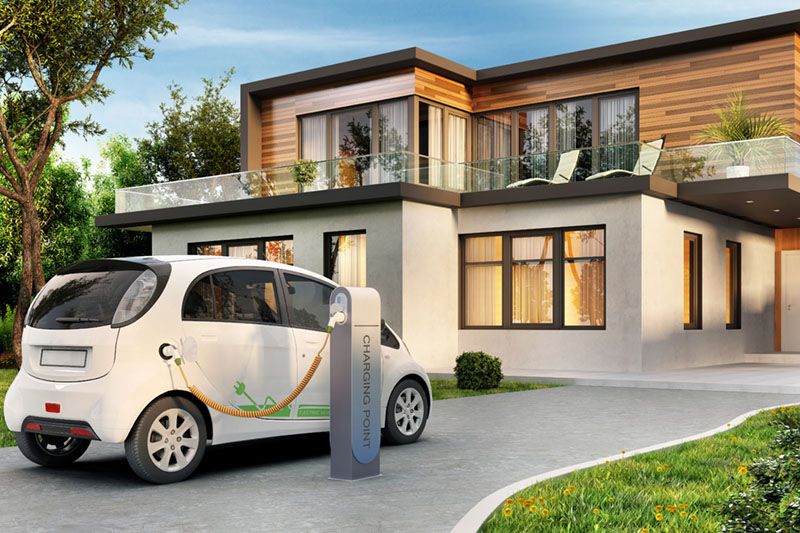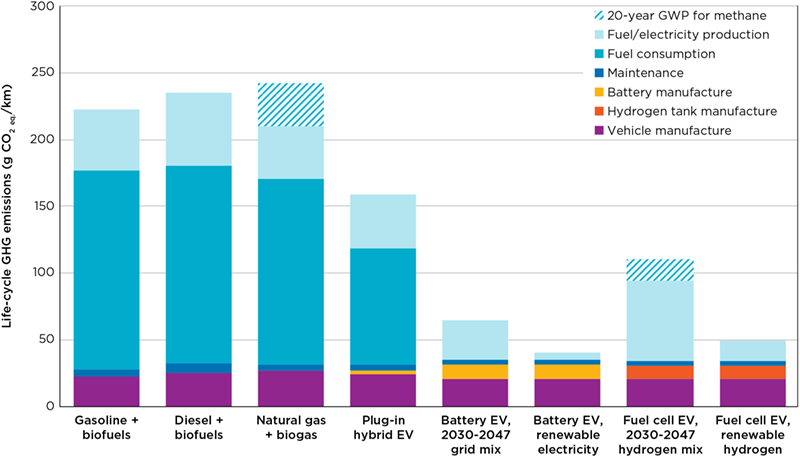ICCT paper for ZEV Transition Council shows EVs have lowest emissions

GFEI partner the ICCT has conducted a wide-ranging new life-cycle assessment (LCA) of the greenhouse gas (GHG) emissions from a variety of passenger car powertrains and fuels. This analysis is the basis of a new briefing for the ZEV Transition Council, an international forum focused on enhancing political cooperation on the transition to zero emission vehicles (ZEVs), which includes ministers from over 50% of the global car market. The analysis shows that only full battery electric vehicles (EVs) and hydrogen fuel-cell EVs have the potential to be very low-GHG pathways, leaving the briefing to conclude that there is no realistic pathway to full decarbonization of internal combustion engine vehicles.
The report finds that the emissions from manufacturing batteries, solar panels, and wind turbines are small when compared to the GHG savings from the greater efficiency and cleaner energy supply of EVs compared to conventional vehicles. Additionally, battery EVs can be expected to operate with progressively fewer ‘upstream’ emissions over their lifetimes as electricity grids decarbonise and the relative benefit of driving EVs compared to gasoline, diesel, and natural gas cars therefore grows over time.
The study also finds that natural gas does not offer climate benefits compared to gasoline and diesel, and many biofuel pathways do not, either. There is not likely to be sufficient supply of very low-GHG biofuels, biogas, and e-fuels to decarbonize internal combustion engine vehicles, and drivers of plug-in hybrid electric vehicles rely too much on the gasoline engine for this pathway to be a long-term climate solution.
The transition to electric vehicles is urgent, particularly as the long lifetime of vehicles means that new passenger car sales must be heavily electric by 2030 in order to achieve deep decarbonisation by 2050.
